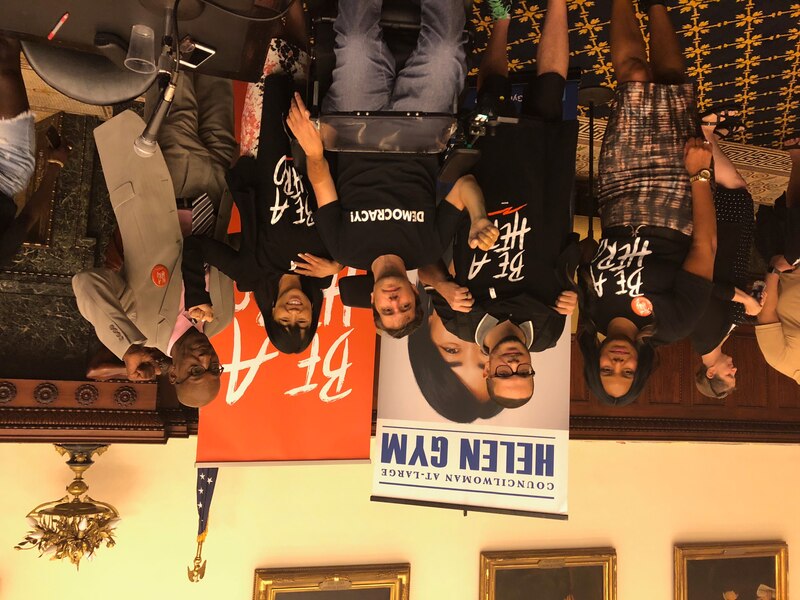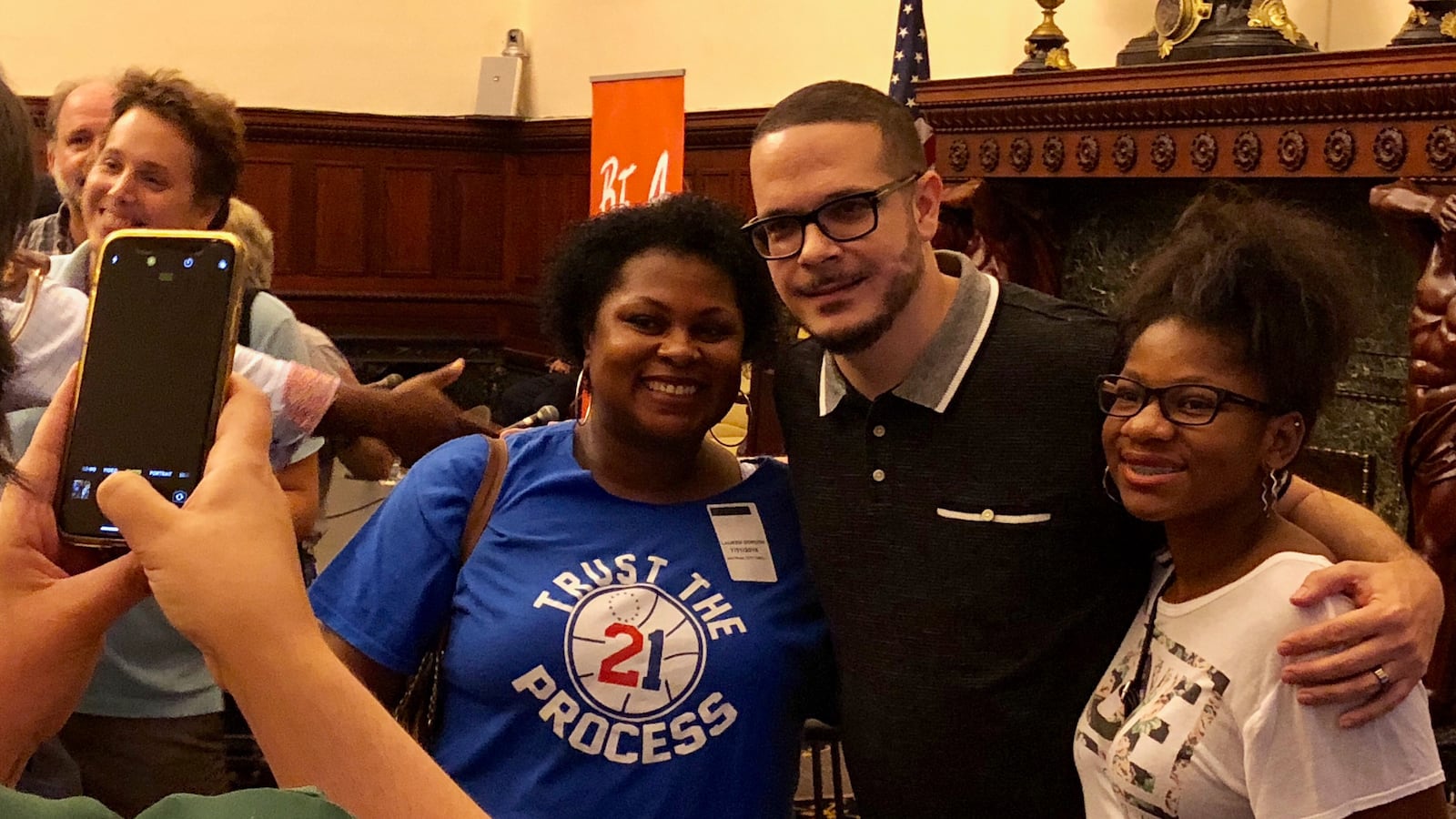This article was originally published in The Notebook. In August 2020, The Notebook became Chalkbeat Philadelphia.
There was a packed house today at City Hall for a discussion about criminal justice reform.
Civil rights activist Shaun King, District Attorney Larry Krasner, City Councilwoman Helen Gym, and co-executive director of the Center for Popular Democracy Jennifer Epps-Addison were among the panelists who joined activist Ady Barkan, also of the Center for Public Democracy, for the Philadelphia stop of his Be a Hero tour.
Barkan, who was diagnosed with ALS in 2016, made headlines in December 2017 when he shared a flight with Sen. Jeff Flake (R, Arizona) and used the opportunity to hold Flake’s feet to the fire over the controversial Republican health-care bill.
In the following months, Barkan launched the Be a Hero campaign to promote civic engagement and social reform.
“ALS, the disease that is destroying my body, creates many obstacles,” said Barkan during his opening statements, addressing a crowd of more than 100 people. “But there are two things that help a lot. One is technology … and the other is solidarity with all of you in our movement.”
King said the meeting was a first for him in that he was sharing a panel with a prosecutor, a position that is usually an adversary of criminal justice reform advocates. But Krasner’s recent actions, such as no longer pursuing cash bail for misdemeanors and nonviolent felonies and dropping marijuana cases, has caused criminal justice reform advocates to see him as an ally.
Krasner’s tenure hasn’t been perfect, King said, but that is partially because “we’re not used to having a friend as district attorney.”
“It’s a peculiar position,” he said. “We have hundreds of years of American history of the prosecutor being a problematic person, and we have six months of history of the person not being problematic.”
Philadelphia’s culture of grassroots activism and local elections dominated much of the discussion, but Gym made it a point to address the ways the criminal justice system intersects with the foster care system.
Gym recently launched a task force that will investigate ways to remedy the practice of having city youth sent to out-of-county placements.
When she spoke, she invoked the controversy surrounding the Trump administration’s separation of families at the U.S.-Mexican border to compare it to how family separation is a common occurrence among black families in Philadelphia.
Gym said her work is about reframing young people’s experience so that their youth is about more than avoiding trouble, but instead “being about joy, being about a sense of possibility and hope, being about a story production for themselves. Making mistakes and coming back from them. Coming back to a community that loves and nurtures them.”

Jennifer Epps-Addison, Shaun King, Ady Barkan, Helen Gym, and John Thompson after their panel on criminal justice reform at City Hall. (Photo by Darryl C. Murphy)
She said, “The system is set up to dehumanize and strip you of all of that as soon you go in. And that can be at a very young age.”
Epps-Addison shared a similar sentiment about the imbalance between educating young people and regulating them.
“We’ll spend all of this money criminalizing young people, monitoring their behavior, kicking them out of parks or shopping malls or downtown districts, but we won’t spend all of the best money in building them the best school and education system that they could possibly have.”
Abigail Leedy, a rising senior at Central High School, said she attended the event because she wanted to learn more about criminal justice reform. She said an African American studies class opened her eyes to the issue’s pervasiveness.
“It’s such a huge part of perpetrating institutional and systemic racism,” she said. “It just seems like something that needs to be addressed immediately and maybe even before other social justice issues.”


